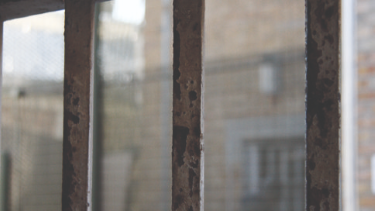New report highlights need for safety, autonomy, access to healthcare, and community when housing survivors
Freedom from Torture last week published a new report warning that the UK's asylum accommodation system is failing survivors of torture and, in some cases, causing serious harm to their mental health.
 The 24-page report, A place to heal: How asylum accommodation re-traumatises torture survivors, can be downloaded here.
The 24-page report, A place to heal: How asylum accommodation re-traumatises torture survivors, can be downloaded here.
It combines clinical evidence, welfare casework and survivors' testimony to examine how housing conditions affect recovery and wellbeing. Freedom from Torture's research was based on three strands of evidence: a review of 39 client case files referred to its legal and welfare service for housing problems between March and November 2024, a focus group with 12 survivors who had lived in various types of asylum accommodation, and a survey of 17 clinicians working with torture survivors.
Although asylum hotels have become a frequent focus of political debate and media coverage in the UK, Freedom from Torture notes that the perspectives of those living inside them are rarely heard.
The report defines four factors it says are essential to ensure that housing for survivors of torture is safe and dignified: safety, autonomy, access to healthcare, and community. Freedom from Torture says that these principles should guide all future asylum accommodation policy.
Overall, the report finds that poor quality and unstable asylum accommodation frequently undermines recovery from trauma and can lead to a serious decline in mental health. It states: "For survivors, the impact of unsafe and inappropriate accommodation can be devastating for their engagement in trauma-focused therapy. Establishing feelings of safety and stability is critical to the effectiveness of the therapies that we use to treat PTSD. Our clinicians observed that when survivors experience acute accommodation problems, it profoundly affects their engagement with therapy, which may then need to pause, shifting the focus towards managing practical issues."
Survivors of torture interviewed for the report described being required to share rooms with strangers, live in overcrowded and unsanitary conditions and being moved repeatedly, often far from specialist healthcare and support networks.
Freedom from Torture stated: "Survivors told us of the psychological impact of living in an environment that they experienced as hostile. They described rooms that were cramped, dirty, and windowless, joined by narrow corridors and an absence of natural light – all of which can trigger memories of the environment in which they were tortured. This sense of hostility was then heightened by their experience of the racist riots of 2024 which has, to this day, left many survivors in fear of leaving their accommodation even to attend essential therapy appointments or social occasions."
The report further describes how survivors struggle with the lack of choice and autonomy in hotel accommodation, where strict rules govern daily routines. Residents spoke about fixed mealtimes, curfews and limited access to communal areas or cooking facilities, leaving them unable to eat when therapy sessions, college classes or medical appointments coincided with serving times. Freedom from Torture clinicians reported that poor diet and food insecurity were affecting survivors' ability to engage with therapy, with some showing noticeable weight loss during their time in hotel accommodation.
On healthcare, the report notes: "Moving a survivor regularly and at short notice from one housing location to another, with a different medical team in each location and no effective way for healthcare information to be shared can seriously interrupt treatment and recovery. Clinicians told us that some survivors were given a new initial health assessment each time they moved to a new area, while others were not assessed at all. Delays with GP registration, difficulty accessing appointments, lost medical records or misdirected communications can obstruct access to prescriptions, medical investigations and specialist secondary care. The experience can be even harder if they are housed in an area with limited experience of the specific needs of torture survivors or a lack of specialist healthcare services."
Sile Reynolds, head of asylum advocacy at Freedom from Torture and author of the report, explained that survivors need safety, privacy and stability to rebuild their lives, but many are instead placed in environments that heighten fear and distress.
The report recommends that the Home Office phase out the use of hotels and large institutional sites, reinstate protections preventing survivors from having to share bedrooms with strangers, and improve risk assessments, healthcare access and safeguarding. It also calls for faster, higher-quality asylum decisions, suggesting that the Government could immediately reduce demand on the housing system by granting leave to remain to people from countries with very high asylum grant rates, such as Syria, Sudan and Eritrea, or where return is not possible, such as Afghanistan and Iran.
Freedom from Torture concludes that reforms should be locally led, with partnerships between central government, local authorities, civil society and residents themselves. It says that such an approach would provide stability and dignity for survivors while easing pressure on the wider asylum system.